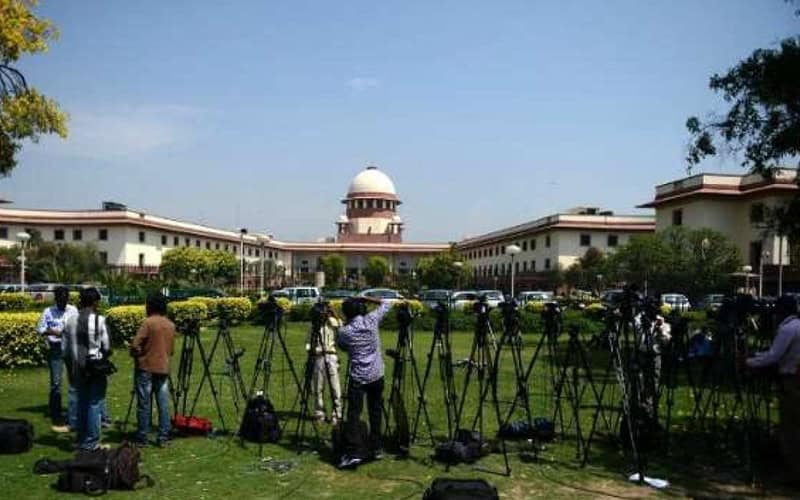New Delhi: The Supreme Court on Wednesday refused to give an urgent hearing to a petition seeking a stay on the top court’s order allowing women of all ages to enter the Sabarimala Temple in Kerala.
Chief Justice of India (CJI) Ranjan Gogoi refused to take up the plea on an urgent basis and stated that the matter would be heard on January 22. “We’ll hear the matter only on Jan 22,” he said.
The top court on Tuesday had agreed to hear review petitions against its September 28 verdict that lifted the age-old ban on entry of women in menstruating ages into the holy shrine of Lord Ayappa.
The bench comprising CJI Ranjan Gogoi, Justice RF Nariman, Justice AM Khanwilkar, Justice DY Chandrachud, and Justice Indu Malhotra is scheduled to hear 49 petitions on January 22.
On the other hand, Kerala Chief Minister Pinarayi Vijayan has stated that the State Government will take legal opinion before proceeding in the matter.
“The Supreme Court has clearly said that its verdict allowing entry of women between age groups 10-50 years to Sabarimala Temple stands. Review petitions will be heard on January 22, after the ‘Makaravilakku’ season ends on January 21. The government will discuss with legal experts and move forward,” said the Chief Minister.
The entry of women inside the shrine is considered as a religious taboo, as devotees believe that the temple deity is an eternal celibate. The apex court’s order allowing all women entry into the shrine was followed by a spate of protests and demonstrations by devotees.
General Secretary of Kerala Bharatiya Janta Party (BJP) unit K. Surendran hailed the top court’s decision to take up review petitions as a victory of the protesters.
“It is an initial victory of Lord Ayappa devotees. We are hopeful of overcoming the Supreme Court verdict when review petitions are heard. We will continue our fight until the end,” he said.
The Sabarimala Temple and surrounding areas witnessed a string of protests last month over the Apex Court’s decision that quashed restrictions regarding the entry of women between the ages of 10 and 50 into the holy shrine.
[source_without_link]ANI[/source_without_link]

